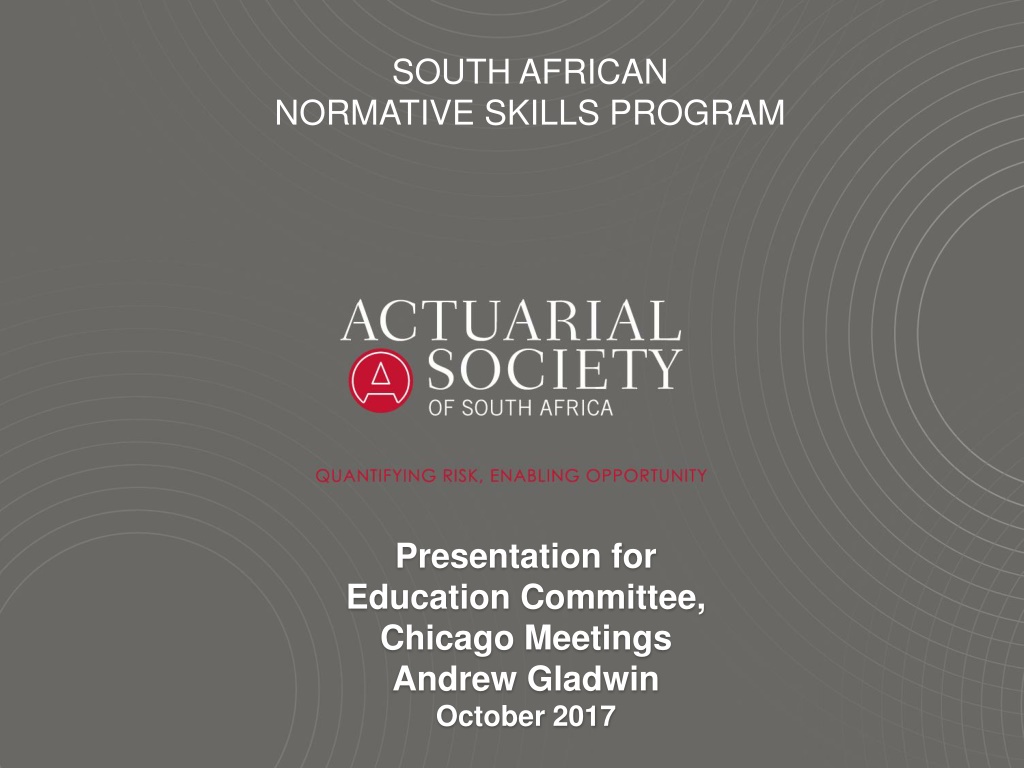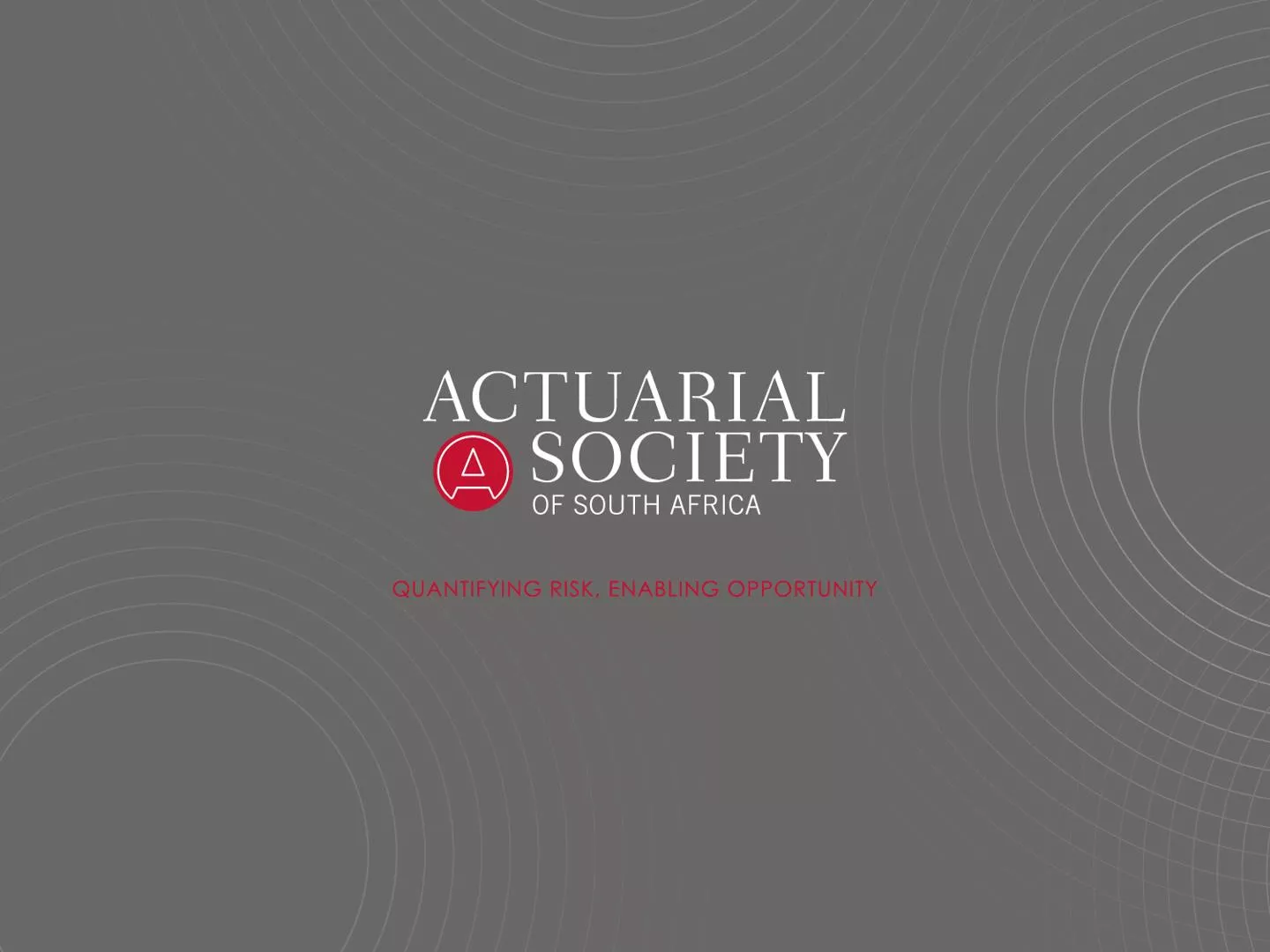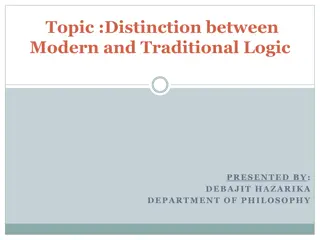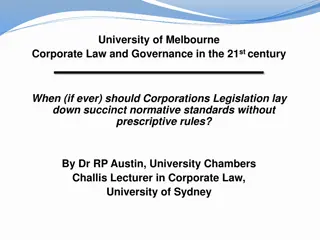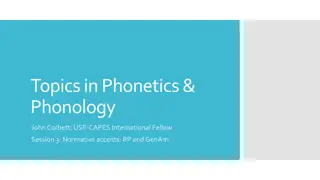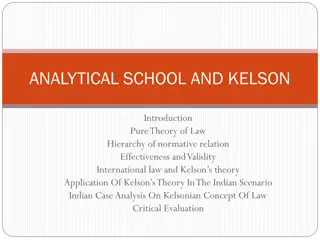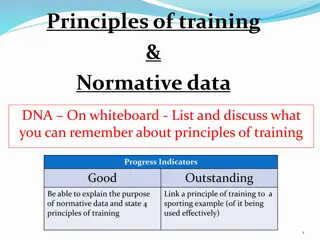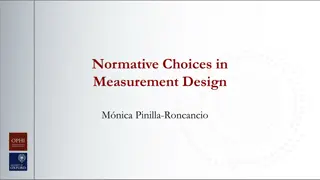Normative Skills Program Presentation Highlights
This presentation outlines the importance of normative skills in professional development, particularly in the context of the South African qualification for actuaries. It discusses key aspects of a profession, the framework for normative skills, and practical implementation strategies. Emphasizing the significance of normative skills in the workplace, it explores how these skills are integrated into work-based learning opportunities for students.
Download Presentation

Please find below an Image/Link to download the presentation.
The content on the website is provided AS IS for your information and personal use only. It may not be sold, licensed, or shared on other websites without obtaining consent from the author.If you encounter any issues during the download, it is possible that the publisher has removed the file from their server.
You are allowed to download the files provided on this website for personal or commercial use, subject to the condition that they are used lawfully. All files are the property of their respective owners.
The content on the website is provided AS IS for your information and personal use only. It may not be sold, licensed, or shared on other websites without obtaining consent from the author.
E N D
Presentation Transcript
SOUTH AFRICAN NORMATIVE SKILLS PROGRAM Presentation for Education Committee, Chicago Meetings Andrew Gladwin October 2017
Key Aspects of a Profession (Bellis Framework) Cognitive (technical skills) Normative (delivery promise) Organisational (ensuring the above) We have specifically defined Normative Skills as the skill required to deliver on the professional promise
Normative Skills & The South African qualification South African qualification developed from 2007 and 2009 and launched at start of 2010 During development of SA qualification, our premise was always that in educating future quality actuaries, we required a greater focus on delivery skills International developments, in actuarial and other professions, have been towards greater emphasis on these skills Current environment clearly calls for actuaries with competency in these skills Specific SA research commenced in 2007
A Framework For Normative Skills Lowther/McMillan/Venter categorised these skills into four categories in their 2008 research Communication/interpersonal Life skills (diversity, study skills, exam techniques, planning etc.) Business management Ethical/professional
Making The Framework Practical Based on initial research, a four stage lifelong learning approach to normative skills was developed and approved by ASSA s Council on 1 August 2011 Initial focus has been on implementing the 3rd stage which is the first two years of a student s working life (Associate level) 4th stage (Fellowship level) commenced this year First and second stage , which were combined, (university/pre-working) commencing 2018
Normative Skills and Work Based Learning . The Normative Skills courses are education opportunities that takes place throughout the student s Worked Learning path of 36 month where the skills and knowledge from the courses can be implemented in a real life working environment. Work Based Learning
Normative Skills Courses COURSE FOUNDATION APP COMMUNICATIONS CORE APP FELLOWSHIP APP . CONTENT Basic concepts a round professionalism and communication, ethics and professionalism around data and modelling Preparing for written communication exam Professionalism, Communication, Practical modelling, business skills, working with teams, strategic thinking, emotional intelligence Integration of normative kills DELIVERY Part of university coursers or Online tutorials Self study or Part of university courses 4 workshops 6 monthly over 2 years 1 workshop over 2 days ASSESMENT Completion of university course or on-line tutorial 3 hour written exam Active participation in workshops, 2 online exams, Modelling practical exam, Work based learning progress Active participation in workshop, work based learning progress WORK BASED LEARNING Generally done before entering workplace N/A 2 years required, integrated with course and personal development 1 additional year required
An actuarial education curriculum that does not specifically recognise the capabilities required for actuarial practice is inadequate and results in sub- optimal learning outcomes . Novice actuarial learners will learn better if they start by developing a schema for actuary Learning quality is greatest when knowledge content and capability development are integrated, and students learn actively and collaboratively. In the author s view, the Actuarial Society of South Africa is on track to set the benchmark for best practice in actuarial education John Shepherd (concluding slides in his presentation on A Blueprint For Actuarial Education at ICA 2010)
